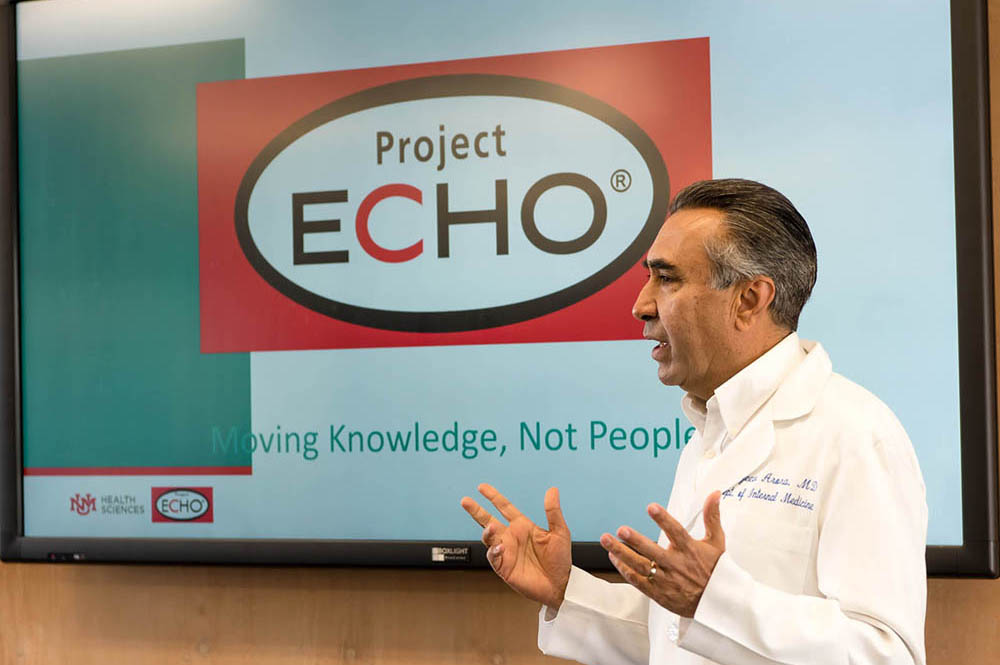Reducing inequities around the globe has always been core to our mission. Guided by that philosophy, we’ve had lasting impact in many areas—from helping rural New Mexicans receive life-saving hepatitis C treatment to collaborating with the World Health Organization and Ministries of Health in Africa to address critical care gaps for patients living with HIV, COVID-19, cancer and more.
In the field of childhood education, the ECHO Model is now being used to help teachers around the world reduce inequity by closing achievement gaps. Our programs are fostering social-emotional learning, building teacher capacity, connecting career counselors and high schoolers and teaching mental health techniques to early childhood educators.
But there is more to do. We look forward to building a global community of education experts that will empower future generations of decision-makers, advocates and engaged citizens by helping children learn to read, providing a support system for early childhood educators and improving students’ mental health resources.
Often, reducing inequity comes down to saving costs and achieving patient and student-level improvements. That’s exactly what a recent independent evaluation of one Project ECHO program demonstrates. Researchers at the Rutgers Center for State Health Policy found that Project ECHO was associated with reductions of inpatient hospitalization and spending, demonstrating the incredible potential ECHO has for transforming health systems.
We are grateful for the support and recognition of Project ECHO’s transformative effect on those most in need. That support, whether in the form of funding, research or the tireless efforts of our ECHO Partners, is creating better outcomes for people and communities around the world.

Sanjeev Arora, MD
Founder and Director
Project ECHO
Featured image description: Dr. Sanjeev Arora, founder of Project ECHO, speaks at a session highlighting the organization’s mission to reduce global inequities through knowledge sharing.

